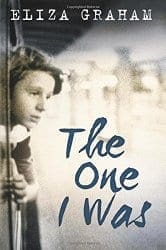The Gods of Tango by Carolina De Robertis- 384 pages
Book Blurb:
February 1913: seventeen-year-old Leda, carrying only a small trunk and her father’s cherished violin, leaves her Italian village for a new home, and a new husband, in Argentina. Arriving in Buenos Aires, she discovers that he has been killed, but she remains: living in a tenement, without friends or family, on the brink of destitution. Still, she is seduced by the music that underscores life in the city: tango, born from lower-class immigrant voices, now the illicit, scandalous dance of brothels and cabarets. Leda eventually acts on a long-held desire to master the violin, knowing that she can never play in public as a woman. She cuts off her hair, binds her breasts, and becomes “Dante,” a young man who joins a troupe of tango musicians bent on conquering the salons of high society. Now, gradually, the lines between Leda and Dante begin to blur, and feelings that she has long kept suppressed reveal themselves, jeopardizing not only her musical career, but her life.
My Review: 3 stars
Click here to order on Amazon!
The Gods of Tango is created with the rich and lyrical language I became accustomed to from Perla. Her descriptions of both Buenos Aires and the Tango are magical and mystical which is common in the South American fiction. I had no idea before reading this that the Tango was a type of music and that it once was the poor man’s dance.
The plotline of a girl pretending to be a boy isn’t new to fiction: Frog Music, The Shield of Three Lions and Pope Joan to name a few. What made this book different was change that took place as Leda, the main protagonist, began to like women. Besides having to masquerade as a man, she also had to keep the pretense while pursuing women. This was quite a challenge in such dangerous times when women were nothing more than homemakers or whores.
I didn’t feel the danger and fear as acutely as I should have and I think that’s due to the liquidity of the writing. I also couldn’t understand the relevance of the departed sister-cousin. It was mentioned so often and with such powerful imagery, I thought there’d be a bigger payoff.
Overall, I enjoyed this book however I felt the middle part of the book could’ve benefited from some stronger editing.
Quotes I liked:
Perhaps people could see only what they expected, what fit inside their vision, as if human vision cam in precut shapes more narrow than the world itself, and this allowed her to hide in plain sight.
-“Family is the homeland of the heart.”
-“That’s what happens to melodies: they get lost in the air. Just like memories. And the body. Memories and melodies and the body dissolve after we die. A musical instrument is not like the body, not at all: like the soul, it carries on.”















